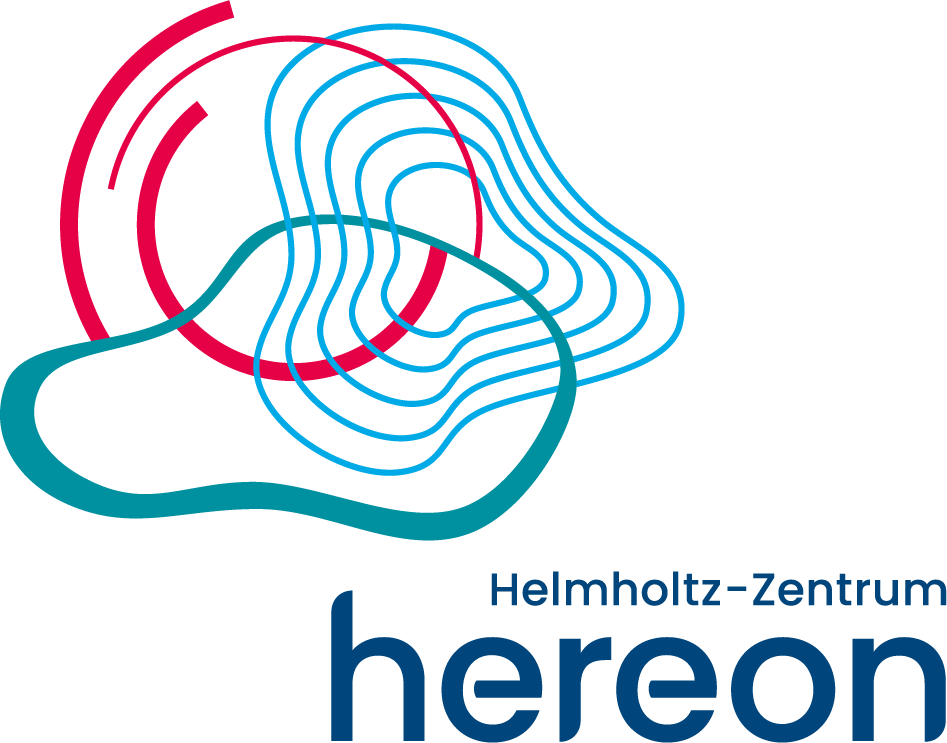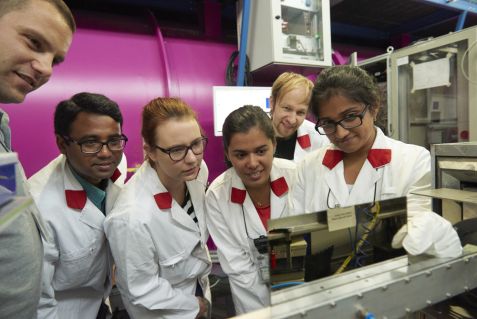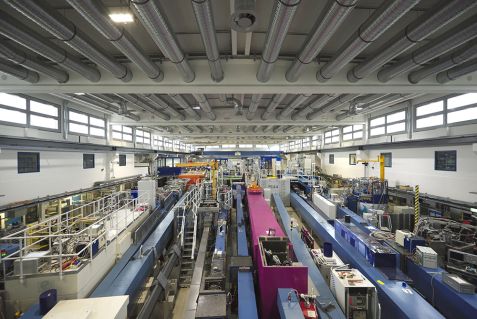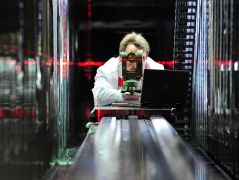MLZ is a cooperation between:
 > Technische Universität München
> Technische Universität München > Helmholtz-Zentrum Hereon
> Helmholtz-Zentrum Hereon
 > Forschungszentrum Jülich
> Forschungszentrum Jülich
MLZ is a member of:
 > LENS
> LENS > ERF-AISBL
> ERF-AISBL
MLZ on social media:

MLZ (eng)
Lichtenbergstr.1
85748 Garching
15.03.2021
EU project for 45 postdocs

Every year, a two-week neutron course takes place in Jülich and at the MLZ in Garching. This will also become part of the structured postdoctoral training. © W. Schürmann / TUM
The three partners of the Heinz Maier-Leibnitz Zentrum will start to train 45 post docs in autumn 2021. The European Union (EU) is funding the project over its five-year duration with € 3.3 million. The three leading partners are investing a further € 5 million.
The aim of the Global Neutron Scientists (GNeuS) project is to train a new generation of highly skilled neutron scientists. European research with neutrons has been at the forefront globally for decades. However, the number of neutron sources in Europe has been decreasing for some years due to decommissioning, resulting in a lack of training opportunities for the next generation of neutron scientists. It is certainly true that large, powerful new sources have been and are still being built, such as the FRM II research neutron source in Garching, or the European Spallation Source (ESS) in Sweden. However, training traditionally often takes place at smaller, less powerful sources in order to ensure the efficient use of cutting-edge sources for research. GNeuS not only brings together existing capacities in a structured way, but also supplements them with interdisciplinary and cross-sectoral competencies, which are essential for the continued success of European research with neutrons.
“Excellent young scientists”

A quick peek into the neutron guide hall reveals more than half of the 30 or so neutron scattering instruments available at the MLZ. © W. Schürmann / TUM
“It is only through excellent young scientists that we can ensure that major investments in facilities such as the MLZ, the ESS, and also in the future the High-Brilliance neutron Source (HBS) will bring the expected benefits to society and that groundbreaking discoveries will be made that are simply not possible with other probes,” explains Prof. Thomas Brückel, Director at the Jülich Centre for Neutron Science (JCNS). He is delighted to see that in being awarded the EU funding, the MLZ, with its close connection to both Helmholtz and University, has clearly been recognised as the ideal location for this project.
Neutron sources and industry participate
In addition to the main applicants of Forschungszentrum Jülich, the Technical University of Munich (TUM) and the Helmholtz-Zentrum Geesthacht, who will recruit the postdocs under contract, 19 other partners are also participating in the project. Amongst them are leading neutron sources from Europe and Asia, as well as companies and service providers from supporting fields, such as experts in the development and manufacture of components for instruments, international chemical companies, patent lawyers and specialists in science communication. As part of the programme, each postdoc must also gain experience in one such sector.
Interlinking with doctoral students’ training
Furthermore, the GNeuS postdocs can be involved in mentoring PhD students, as well as participants in summer schools and neutron courses, to further develop their teaching and supervising skills. The first of three application rounds for aspiring young researchers is expected to start in autumn 2021.
Original text: Angela Wenzik / Forschungszentrum Jülich
Further information:
“Global Neutron Scientists” (GNeuS) is a H2020-MSCA-COFUND-2020 project of the Marie Sklodowska Curie Action Programme within the framework of the “Scientific Excellence” pillar of Horizon 2020. The funding programme aims to promote excellence in the training, mobility and career development of researchers, thus disseminating the best practices of Marie Sklodowska Curie Actions.
This project has received funding from the European Union’s Horizon 2020 research and innovation programme under the Marie Skłodowska-Curie grant agreement No 101034266
Further partners in the GNeuS project:
- China Spallation Neutron Source, CSNS, China
- Institut Laue-Langevin, ILL, France
- European Spallation Source, ESS, Sweden
- Joint Institute for Nuclear Research, JINR, Russia
- Japan Proton Accelerator Research Complex, J-PARC, Japan
- Budapest Neutron Center,Hungary
- ENEA, Italy
- Exact-Lab, Italy
- Dynaxion, The Netherlands
- Hoffmann Eitle, Germany
- JJ x-Ray DTU Science Park, Denmark
- Mirrotron Ltd, Hungary
- Promoscience, Italy
- Solvay, France
- Philip Morris
- International, Switzerland
- BASF
- Swiss Neutronics AG
- Bilfinger Noell GmbH
- S-DH GmbH
Contact:
Dr. Flavio Carsughi, JCNS Science Office
Forschungszentrum Jülich
Außenstelle am Heinz Maier-Leibnitz Zentrum
Tel. 089 289-10703
E-Mail: f.carsughi@fz-juelich.de
Press contact:
Angela Wenzik, Science Journalist
Forschungszentrum Jülich
Tel. 02461 61-6048
E-Mail: a.wenzik@fz-juelich.de
Related News
MLZ is a cooperation between:
 > Technische Universität München
> Technische Universität München > Helmholtz-Zentrum Hereon
> Helmholtz-Zentrum Hereon
 > Forschungszentrum Jülich
> Forschungszentrum Jülich
MLZ is a member of:
 > LENS
> LENS > ERF-AISBL
> ERF-AISBL
MLZ on social media:



